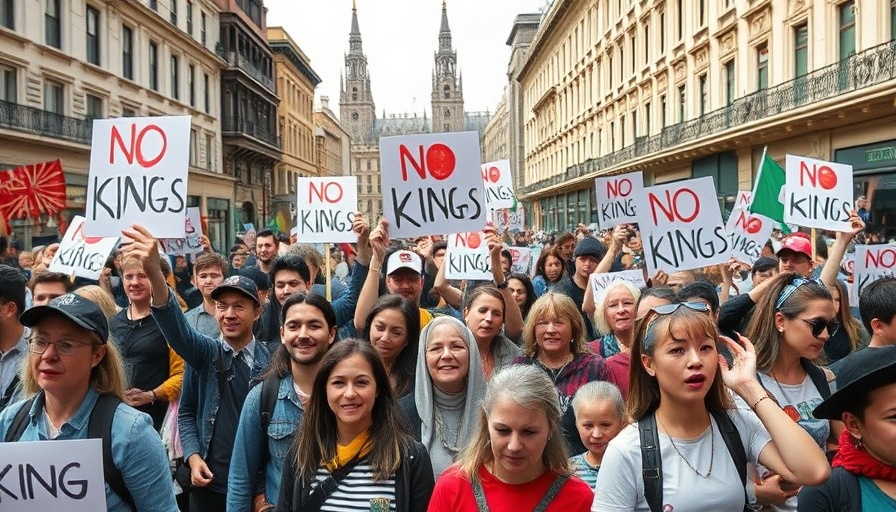
Thousands Gather Nationwide to Protest Authoritarianism
This past Saturday, cities across the United States erupted with the sounds of chants, drums, and determination during the "No Kings" protests. These demonstrations attracted thousands of participants who were united by a common goal: to express opposition against President Trump amidst heightened tensions characterized by divisive politics and controversial governance.
A Unified Voice Against Authoritarianism
The "No Kings" protests were ignited as a response to Trump's planned military parade in Washington, D.C., marking the Army's 250th anniversary on the same day. Demonstrators, donning banners and shouting anti-authoritarian slogans, marched through downtown areas in cities like New York, Denver, Chicago, Houston, and Los Angeles. The overarching themes were clear: a commitment to protecting democracy and immigrant rights.
Police Presence and Tensions
While the majority of protests proceeded peacefully, the streets were not without their confrontations. In Los Angeles, where demonstrators gathered in significant numbers, police had to issue dispersal orders when some crowd members allegedly threw objects at officers. This incident showcased the fine line between peaceful protest and unrest, as law enforcement also mobilized the National Guard in anticipation of violence.
A Turn of Events in Minnesota
Tragically, a dark cloud loomed over the planned protests in Minnesota. The state’s events were canceled after two Democratic lawmakers were fatally shot, marking a politically motivated attack that sent shockwaves through the political landscape. As authorities searched the suspect's vehicle, they discovered "No Kings" flyers, indicating the rising risks associated with political civil discourse.
Political Climate Heightens Fears of Violence
Prior to the protests, Texas authorities reported credible threats against state legislators, dragging attention to the growing trend of hostility targeting public officials. This sobering reality emphasizes the challenges faced by protesters in today's politically charged climate, illustrating how citizens must navigate advocacy while considering safety and security.
Local Responses and Engagement
The confrontations and tragedies in various states served as a poignant reminder of both the power and peril of civic engagement. As Atlanta’s 5,000-capacity event quickly reached its limit, it became evident that issues surrounding immigration, authority, and civil rights continued to resonate deeply with Americans. Activists and advocates emphasized the importance of collective action, demonstrating that the voice of the people could challenge governmental overreach.
Ending with a Call to Action
The weekend’s events served not only as a platform for dissent but also galvanized communities to reflect on the state of democracy and the critical need for ongoing activism. It is imperative that individuals engage in their local political scenes, recognize the importance of peaceful protests, and advocate for policies that prioritize human rights and equitable governance. By actively participating in discussions and electoral processes, each member of society can contribute to protecting the democratic ideals that resonate at the heart of these protests.
Through understanding and embracing our collective power, we can ensure that no one feels like a subject to authority—after all, everyone has a voice worthy of being heard.
 Add Element
Add Element  Add Row
Add Row 



Write A Comment